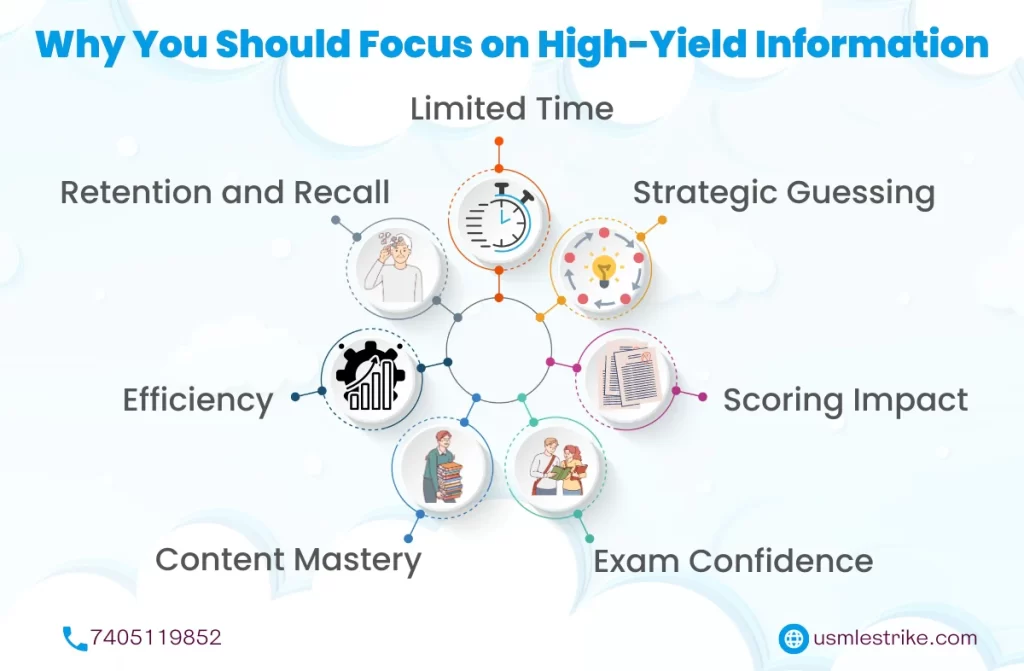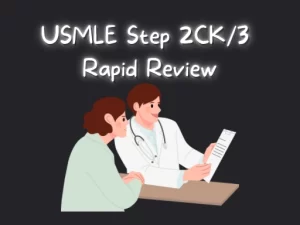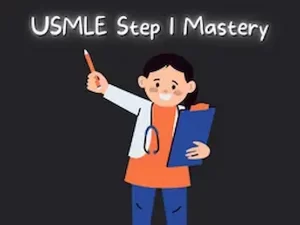The United States Medical Licensing Examination (USMLE) Step 1 is a critical exam for medical students that assesses their understanding of basic medical concepts and their ability to apply them to clinical scenarios. In this post, we will provide tips on how to prepare for the USMLE Step 1 high yield topics, study techniques, practice questions, time management, and test-taking strategies. The test is divided into seven blocks, each consisting of 40 multiple-choice questions, and lasts for eight hours. With the right preparation and study techniques, you can ace the exam and achieve a great score.

USMLE Step 1 High Yield Topics
The USMLE Step 1 exam covers a broad range of topics, including anatomy, biochemistry, pharmacology, and physiology. However, certain areas are tested more frequently than others. By focusing on these Step 1 high yield topics, you can maximize your preparation for the exam.
Top 10 USMLE Step 1 high yield topics include:
- Anatomy: This includes the structure and function of the human body, such as the musculoskeletal, nervous, and cardiovascular systems.
- Biochemistry: This includes the chemical processes that occur in living organisms, such as metabolism, enzymes, and nucleic acids.
- Pharmacology: This includes the study of drugs and their effects on the body, including drug interactions, side effects, and dosages.
- Physiology: This includes the study of the processes and functions of living organisms, such as circulation, respiration, and digestion.
- Pathology: Learn essential mechanisms of diseases, histopathology, and clinical manifestations.
- Microbiology: Know important pathogens, host-pathogen interactions, and immunology.
- Immunology: Understand immune system components, functions, and disorders.
- Behavioral Sciences: Cover psychiatry, psychology, and social sciences relevant to medicine.
- Biostatistics and Epidemiology: Interpret research studies, statistics, and disease patterns.
- Neuroscience: Comprehend neuroanatomy, neurophysiology, and common neurological disorders.
Study Techniques
To prepare for the USMLE Step 1 exam, you need to develop effective study techniques. Here are some general tips on how to study for the exam:
- Use Flashcards: Flashcards are a great way to memorize the highest yield topics for Step 1, especially anatomy and pharmacology. By regularly reviewing and testing yourself, you reinforce the key concepts that are frequently tested on the exam, helping you retain the most important information.
- Practice Questions: Doing practice questions is one of the best ways to prepare for the exam. It helps you understand the format and types of questions that will appear on the test, allowing you to become familiar with the structure of Step 1. Focus on practicing questions related to Step 1 high yield topics, as these will help you target the areas that are most frequently tested.
- Active Recall Techniques: This involves testing yourself on the information you’ve learned, which helps you remember the information better. Active recall strengthens memory retention and is particularly effective when revisiting step 1 high yield topics, enabling you to solidify your knowledge in critical areas like microbiology, pathology, and pharmacology.
Practice Questions
One of the most effective ways to prepare for the USMLE Step 1 high yield topics is by doing practice questions. There are several resources available for practice questions, including UWorld, USMLE Strike Question banks, and NBME practice exams. Here are some tips for using practice questions effectively:
- Take Practice Tests: in a simulated environment: Mimic test day conditions by taking practice tests in a quiet environment with a similar setup to the real exam.
- Review Your Answers: After taking practice tests, review your answers to understand why you got a particular question right or wrong.
- Identify Knowledge Gaps: Practice tests can help you identify areas where you need more practice and focus your studying.
Time Management
Effective time management is critical when preparing for the USMLE Step 1 high yield topics. Here are some tips on how to manage your time:
- Create a Study Schedule: Develop a study schedule that allows you to cover all the Step 1 high-yield topics, practice questions, and practice tests.
- Prioritize Your Study Materials: Focus on Step 1 high-yield topics and practice questions first, and then move on to other topics as time allows.
- Take Breaks: Incorporate regular breaks into your schedule to rejuvenate your mind, leading to improved focus and productivity.
Test-Taking Strategies
Finally, test-taking strategies are crucial when taking the USMLE Step 1 exam. Here are some tips on how to perform well during the test:
- Read Questions Carefully: Read questions carefully and understand what is being asked. Pay attention to keywords that may point to specific conditions or processes related to Step 1 high yield topics. This will help you identify the correct answer and avoid misinterpretation of the question.
- Eliminate Wrong Answers: Eliminate obvious wrong answers to narrow down the options. This strategy increases your chances of selecting the right answer, especially when dealing with complex questions related to Step 1 high yield topics. By focusing on plausible answers, you can make an educated guess when you’re unsure.
- Manage Your Time During the Test: Efficient time management is crucial for success during the test. Practice pacing yourself to ensure you have enough time to review questions related to Step 1 high yield topics. Prioritize answering questions you are confident about and return to more challenging ones later. Time management will help you complete the exam without rushing.
Mastering High-Yield Topics for Exam Success
Acing the USMLE exam requires a strategic approach, and leveraging high-yield topics is key to success. Here’s a guide on how to ace the exam with a focus on high-yield topics, incorporating insights from USMLE Strike:
- Identify High-Yield Topics: Begin by identifying high-yield topics outlined in resources like First Aid and UWorld. USMLE Strike can guide you in recognizing the most critical subjects that frequently appear on the exam, particularly focusing on step 1 high yield topics that are essential for a strong performance.
- Utilize USMLE Strike Resources: USMLE Strike provides curated study materials and targeted coaching, emphasizing high-yield topics. Incorporate their resources into your study plan for a focused and efficient preparation strategy that hones in on step 1 high yield topics, ensuring you cover the most frequently tested material.
- Prioritize Core Subjects: Concentrate on core subjects like Pharmacology, Pathology, and Microbiology. USMLE Strike emphasizes the importance of mastering these high-yield areas, ensuring a strong foundation for success in step 1 high yield topics that are central to your overall exam score.
- Strategic Study Plans: USMLE Strike assists in developing strategic study plans tailored to high-yield topics. Their expertise ensures that you allocate time effectively, focusing on step 1 high yield topics that contribute significantly to your success, while also balancing other areas of the exam.
- Interactive Learning with USMLE Strike: USMLE Strike’s interactive learning approach enhances understanding of high-yield topics. Engage in discussions, attend workshops, and utilize their platform to reinforce your knowledge on step 1 high yield topics, giving you a deeper understanding of crucial subjects.
Conclusion
The USMLE Step 1 exam is a crucial step in the career of a medical student, and it requires a well-planned approach to achieve a great score. By focusing on the highest yield topics for Step 1, using effective study techniques, practicing with practice questions, managing your time, and using test-taking strategies, you can maximize your preparation and increase your chances of success. Prioritizing step 1 high yield topics in your study plan ensures that you’re targeting the most frequently tested material, setting you up for a strong performance on the exam.
Check out USMLE Preparation for Indian Students: 2025.





